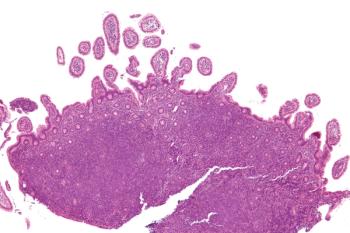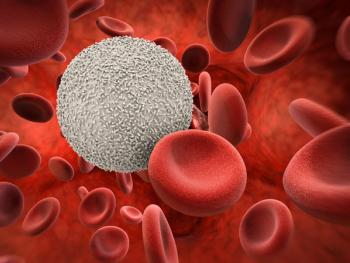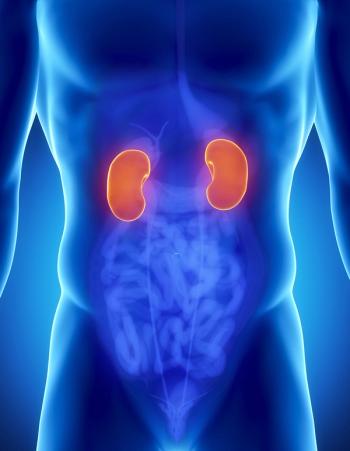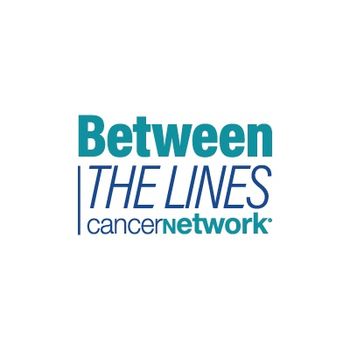
Treatment with brexucabtagene autoleucel appears to be a cost-effective treatment for patients with relapsed/refractory mantle cell lymphoma following treatment with a Bruton tyrosine kinase inhibitor.

Your AI-Trained Oncology Knowledge Connection!


Ariana Pelosci, managing editor for CancerNetwork® and the journal ONCOLOGY®, has been with the team since June 2021. She specializes in both web and print, and runs the social media accounts for CancerNetwork®.
She graduated from the University of Delaware, where she studied Media Communications and minored in journalism and marketing. At heart, she is a Jersey girl, and you can always find her down the shore during her free time.
Ariana loves to read, specifically historical or contemporary fiction. Follow Ariana on Twitter @APelosci or email her at apelosci@mjhlifesciences.com.

Treatment with brexucabtagene autoleucel appears to be a cost-effective treatment for patients with relapsed/refractory mantle cell lymphoma following treatment with a Bruton tyrosine kinase inhibitor.

The phase 3 ACHIEVE trial analyzed Asian patients with stage III colon cancer to determine how a 3-month treatment duration with capecitabine and oxaliplatin compared with 6 months.

Leukemia survivors who were adolescents or young adults had worse long-term survival outcomes vs the general population.

Data from a large-scale population-based case control study indicated that excessive weight could have a notably higher odds ratio of CRC risk than previously identified in epidemiologic studies.

Patients with node-positive breast cancer did not have a significant improvement in disease-free survival with the addition of internal mammary node irradiation to regional nodal irradiation; however, patients with medically or centrally located tumors could benefit.

Patients with relapsed/refractory B-cell non-Hodgkin lymphoma who experienced grade 3 or higher immune effector cell–associated neurotoxicity syndrome who were treated with early intrathecal therapy experienced improved survival.

Real-world practice patterns with bevacizumab for patients with ovarian cancer differed greatly from published clinical trial data.

Stereotactic body radiotherapy plus pembrolizumab and trametinib could potentially become a novel treatment strategy for patients with locally recurrent pancreatic cancer following surgery.

The primary end point of progression-free survival was not met in the phase 3 SKYSCRAPER-1 trial assessing tiragolumab plus atezolizumab for patients with PD-L1–high locally advanced or metastatic non–small cell lung cancer.

Investigators identified that in pivotal clinical trials supporting FDA approvals of CAR T-cell therapies for patients with hematologic cancer, Black patients were significantly underrepresented.

Despite having a good rate of treatment adherence, patients who are diagnosed with high-risk stage III colorectal cancer at a younger age may have higher rates of relapse.

The phase 1/2 SPARTACUS trial assessed the use of stereotactic hypofractionated radiation therapy in patients with uterine cancer; the treatment appeared to be well tolerated.

Five-year follow-up findings highlighted a durable benefit among patients with advanced renal cell carcinoma following treatment with nivolumab plus ipilimumab compared with sunitinib.

Minimal increases in genetic testing and counseling were observed when using a traceback program to contact patients with ovarian cancer and surrogates via phone, and was not time sensitive.

Pembrolizumab has been approved by the European Commission in 5 indications of solid tumors that are microsatellite instability–high or deficient mismatch repair.

Although treatment with polatuzumab vedotin (Polivy) after anti-CD19 CAR T-cell therapy was safe and effective for patients with relapsed/refractory large B-cell lymphoma, it had a short duration of response.

Minimal residual disease status 3 months and 6 months following autologous stem-cell transplant could be predictive of progression-free survival and overall survival outcomes in multiple myeloma.

Patients with metastatic castration-resistant prostate and DNA repair gene defects cancer treated with niraparib were found to experience significant anti-tumor activity.

Based on results from an ongoing phase 1/2 trial, the FDA has granted fast track designation to HM432939 for patients with FLT3-mutant relapsed/refractory acute myeloid leukemia.

Investigators have identified an association between the diagnosis and care of older patients with multiple myeloma and substantial financial burden on Medicare.

The results of the phase 3 TOPAZ-1 trial led to the priority review of durvalumab plus chemotherapy in patients with locally advanced biliary tract cancer.

Patients with persistent, recurrent or metastatic cervical cancer whose tumors express PD-L1 can receive treatment with pembrolizumab plus chemotherapy with or without bevacizumab following approval by the European Commission.

Surufatinib, a treatment for patients with pancreatic and extra-pancreatic neuroendocrine tumors, received a complete response letter from the FDA.

Patients with N0 to N1 nasopharyngeal carcinoma who received upper-neck radiation vs whole-neck radiation saw similar regional control with less radiation toxicity.

Trastuzumab deruxtecan has been granted breakthrough therapy designation by the FDA for the treatment for HER2-low metastatic breast cancer.

A qualitative analysis identified 4 themes that could be improved upon to help with symptom management in patients with head and neck cancer.

Gregory Riely, MD, PhD, and Tarek Mekhail, MD, detailed the use of mobocertinib of platinum-pretreated patients with metastatic non–small cell lung cancer.

By analyzing CT scans with artificial intelligence, the development of pancreatic ductal adenocarcinoma may be predicted years before actual diagnosis.

High rates of hematopoietic cell transplantation were observed in patients with relapsed/refractory acute myeloid leukemia who received 131-iodine conditioning in the phase 3 SIERRA trial.

Anetumab ravtansine yielded a manageable safety profile in patients with relapsed mesothelin-positive malignant pleural mesothelioma in the second-line setting, but it did not appear to be superior to vinorelbine.